1. Why did Season 3 open with Frank Underwood (Kevin Spacey) literally pissing on his father's grave?
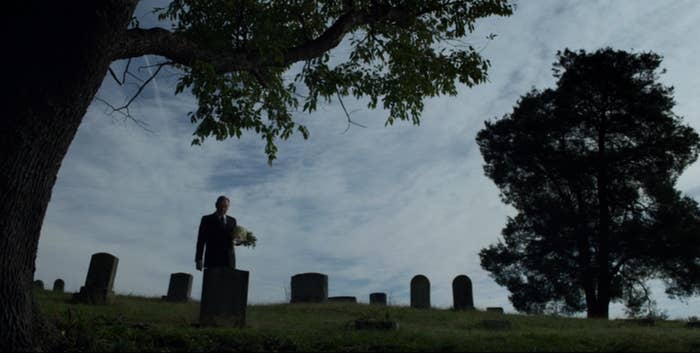
Season 3, Episode 1: "Chapter 27"
"First of all, one of the big questions at the end of Season 2 was: Is Doug [Michael Kelly] alive? And for some viewers, not everyone had this reaction, but you see Frank arriving at a graveyard and the assumption is that he's visiting Doug's grave ... So it prolongs the suspense in a way for some viewers. And then we have the revelation that it's not Doug at all. We still don't know at that point if Doug's alive, but we know that at least this grave isn't his.
Second of all, legacy was going to be an important thing for Frank as he navigates his way through the presidency. And while we don't use the word 'legacy' there, he definitely touches upon a theme by saying, 'When they show up at my funeral, they'll have to wait in line, unlike your funeral, my failure of a father, where no one showed up but me.'
And also, it was some irreverent fun with Frank. I knew that this season was going to take a different tonal and stylistic approach, that we were really going to get into the emotional journey and drama of the characters, and right off the bat, I wanted to give people a little bit of comedy, a little bit of fun before we got into some pretty bleak story with Doug Stamper for the next 25 minutes. I knew that we weren't going to see Francis, except on TV, for 25 minutes, and I wanted to make sure they got a taste of Frank so they felt secure they were going to see him again in that episode, if not for a little while."
2. Was Doug always going to live?
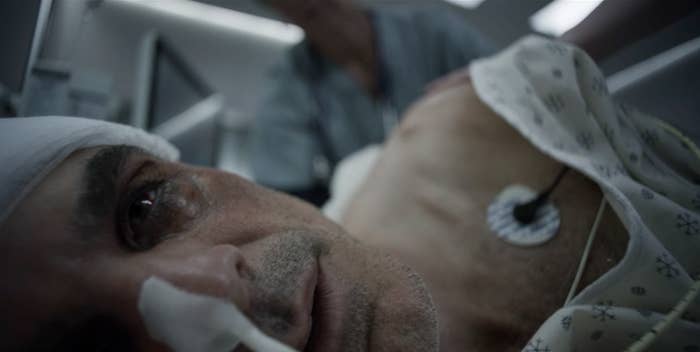
Season 3, Episode 1: "Chapter 27"
"For a moment at the beginning of breaking Season 2, we flirted with him actually being dead. We were talking about Doug's arc for Season 2 and we knew that Rachel Posner [Rachel Brosnahan] was a problem. We were really interested in this bizarre relationship that formed between them, which is difficult to pin down: Is it more sexual? More fatherly? Is it about loneliness? Is it a mix of all three? But at the end of the day, she was a loose end — and we know how the Underwoods, and Doug Stamper by association, deal with loose ends.
So naturally, the first place we went at the end of Season 2, as we began to break it, was that Doug had to kill Rachel. And when we have a strong dramatic idea like that, my first impulse is to say, 'What is the opposite of that idea? Is the opposite idea truly awful or is it actually even better?' The opposite of that was Rachel killed Doug. We didn't know how or why, but the moment I said that — because it was sacrilegious to say that about a character we loved so much — everyone's jaw dropped and we all went silent for a few seconds. It was such a provocative thought that I said, 'You know what that means, guys? She's gotta die. We've gotta do that. If it is affecting us this way, just talking about it, imagine seeing it on-screen?'
So we start talking about that for about half the day. Could we really do this? Could we live with ourselves? Is this right for the story? It's a provocative idea, but we didn't want to do it just for that fake. Then we realized that we could actually do both. We developed a story where it seemed like Doug was going to kill Rachel and then she turned the tables on him. It could seem like he might have been left for dead, but we could write it in such a way that he would actually be alive when we came into Season 3. When we finally arrived at that, we realized that was the best possible option because we got to do all of the above."
3. What is the deal with Doug's syringe of booze?
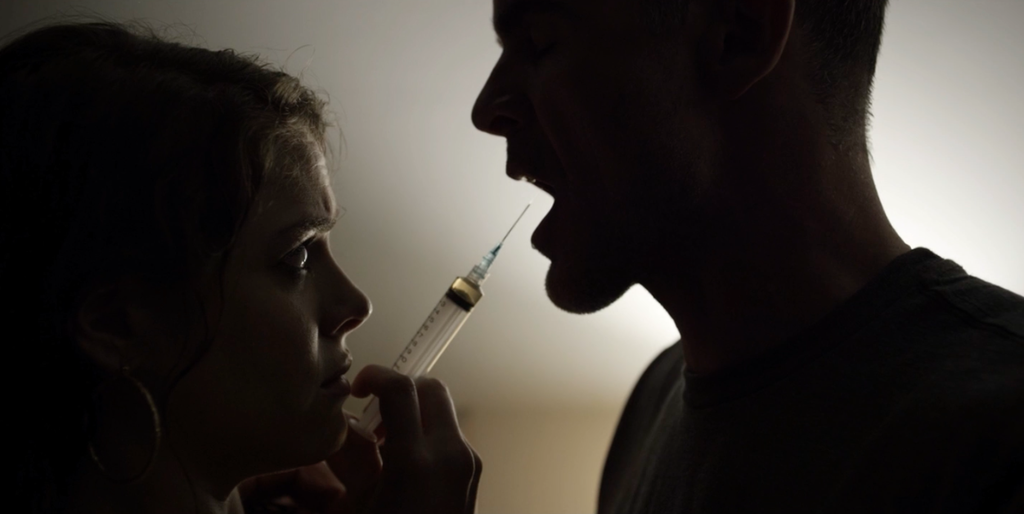
Season 3, Episode 1: "Chapter 27"
"I can speak from experience about this — not because I've drank bourbon that way, but as a recovering alcoholic. I haven't had a drink in 15 years, but what becomes a big part of your life is control. And control has always been a part of Doug's life anyway. Loyalty and control are the two things that give him stability. He's about to make a decision that is going to put him off the wagon. He's turning his back on 15 years of sobriety, and he needs to do it in a way he can rationalize. So by measuring it out exactly, by having it be a syringe instead of straight from the bottle, by putting it in the hands of someone else... I think it's twisted and weird, but it's a way for him to see this as medicinal — as a way of treating his pain that isn't the same as drinking. Whatever strategy you can come up with, rational or irrational, to make that moment palatable for yourself is what you're going to do."
4. What exactly was going on between Frank and Claire Underwood (Robin Wright) in that Episode 2 sex scene?
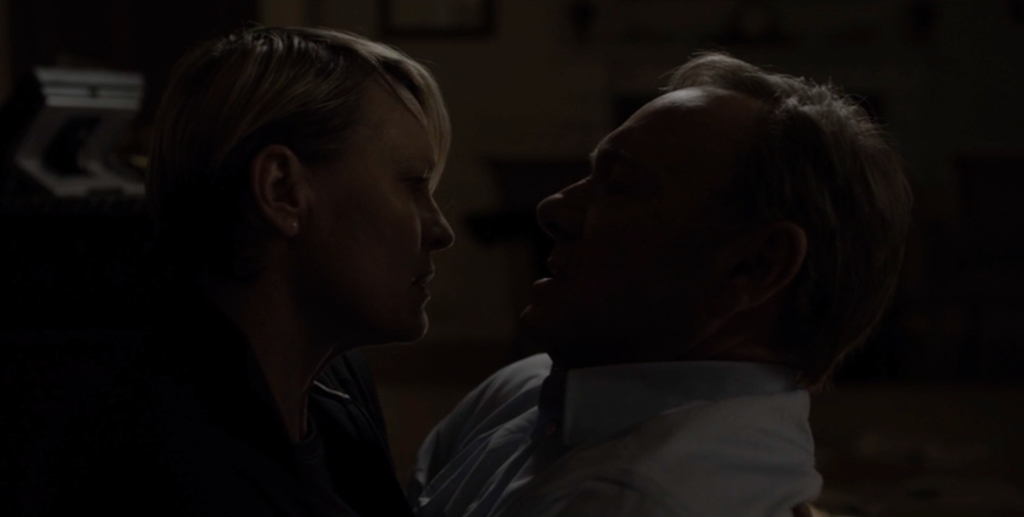
Season 3, Episode 2: "Chapter 28"
"It's the first time we've ever seen the Underwoods have sex. It's not that they've never had sex before, we've just never dramatized it. And, in general, we don't have sex scenes on the show unless they push the story forward and reveal things about our characters that we have not yet discovered — not because we're prudes, but because we don't want any scene simply to be there for its own sake.
In that scene, we see Frank perhaps the most vulnerable we've ever seen him. And Claire — who throughout the episode has been projecting confidence, resolve, and strength — finds him, and they couldn't be farther apart in terms of how they're dealing with the challenges before them. To sound a little flippant, we talked about it as Claire fucking the hope back into him.
And sex, like anything, is transactional to a degree. I often talk about love being transactional and people raise their eyebrow — they think that's a pretty cold way to think about love, and that's not how I see it. But if I give someone my love, I'm asking for their love in return. If I give them my vulnerability, my hope is I will get strength in return, and vice versa — it is a pact. And when both sides are offering the same amount of love, the same amount of vulnerability and strength, then it works. It's beautiful. When it's unbalanced, you have problems.
In this case, you see it quite balanced: He's in a vulnerable position and she's in a strong one. And in this physical consummation of their union, at that moment, she is giving him the strength he needs. While it can seem abrasive, it's also kind of wonderfully, in my twisted mind, tender and beautiful. Maybe not everyone saw it that way, but that's what we were after."
5. Why did you choose to make Russia's real-world policy against homosexuality such a prominent part of Season 3?
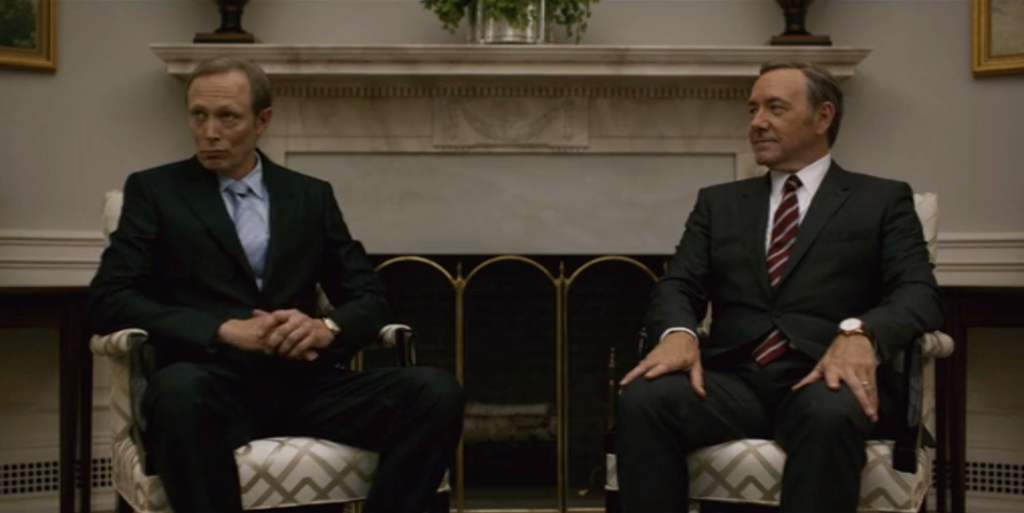
Season 3, Episode 3: "Chapter 29"
"When we first started working on Season 3, it was over a year ago. My biggest worry at the time [was] that no one would care about Russia because Russia wasn't in the news. I wanted to hinge this whole international storyline on Russia and the only thing going on in Russia was the Sochi Olympics. But I thought it was a strong character and a strong storyline so I decided to pursue it anyway. Then Ukraine and Crimea happened after we already had developed our story, which is a bizarre and eerie coincidence.
The whole thing with the Jordan Valley and Russian troops occupying a parcel of land they shouldn't be — which is very similar to what's going on now — was all fantasy. That wasn't something real life presented to us. What wasn't a fantasy was a very real law in Russia — a very loose, strange law where just about anything the government decides is propagandizing homosexuality to children is against the law. I don't know what that means and that's part of the problem with the law, is that it can be used as an authoritarian device. And so we thought this was — more for the sake of storytelling than to present some view of what's right and wrong in the world — a perfect reflection of the sort of regime that Petrov [Lars Mikkelsen] was in charge of.
And we thought it would be really interesting if Petrov is not enforcing the law for the sake of his own belief system, but really as a political tool. And that creates a really interesting dynamic where that law allows him to arrest an American that he can use as a pawn for much bigger stuff.
The real debate that's happening in Episode 6 between Francis and Petrov has nothing to do with that law; it has to do with much bigger stuff, and that law is a piece in the puzzle. Whereas for Claire and for Michael Corrigan [Christian Camargo], it's all about that law because this guy is sitting in a jail without freedom on the horizon unless he completely trashes his own belief system. The reason we went after that very real-life thing is because it allowed us to access this complex dynamic."
6. Was it difficult to get Pussy Riot members Nadezhda Tolokonnikova and Maria Alyokhina on the show?
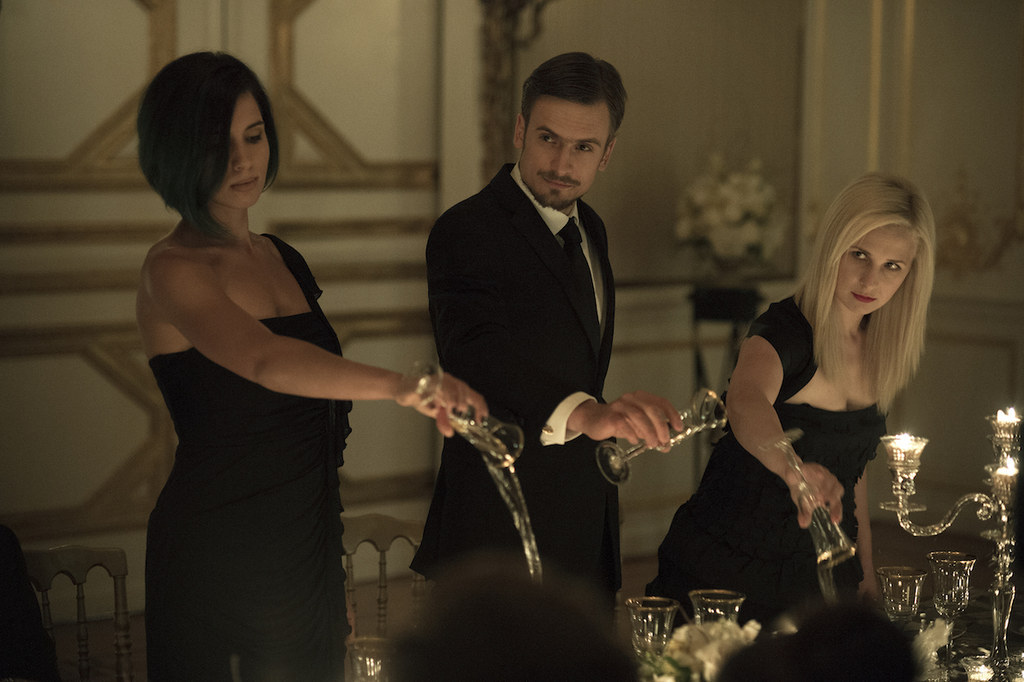
Season 3, Episode 3: "Chapter 29"
"That was surprisingly easy. I was at a PEN Gala and Pussy Riot was being honored and I shamelessly went up to them. I was already developing this storyline and when I saw them, I thought, There could be a place for Pussy Riot in this. I knew at the time we were going to do the state dinner episode and I wanted there to be something disruptive in it; I wanted there to be an element of chaos, and as soon as I saw them, I knew they would be perfect.
So I went up, introduced myself, said, 'I make House of Cards,' and it turns out they were fans of the show. They'd watched on the plane over. I said, 'Would you come into the writers room to talk to us? I wanted to hear your thoughts on the storyline we're telling and also I would love for you to consider maybe being in the show.' They were totally game. They came into the room, we spoke for four hours, walked them through the whole story and that was that. They're remarkable people. We have some fun in the episode, but in real life, they spent two years in prison and went on multiple hunger strikes. They really put themselves out there in a way that I think very few people have the courage to do."
7. How did you go about creating America Works?
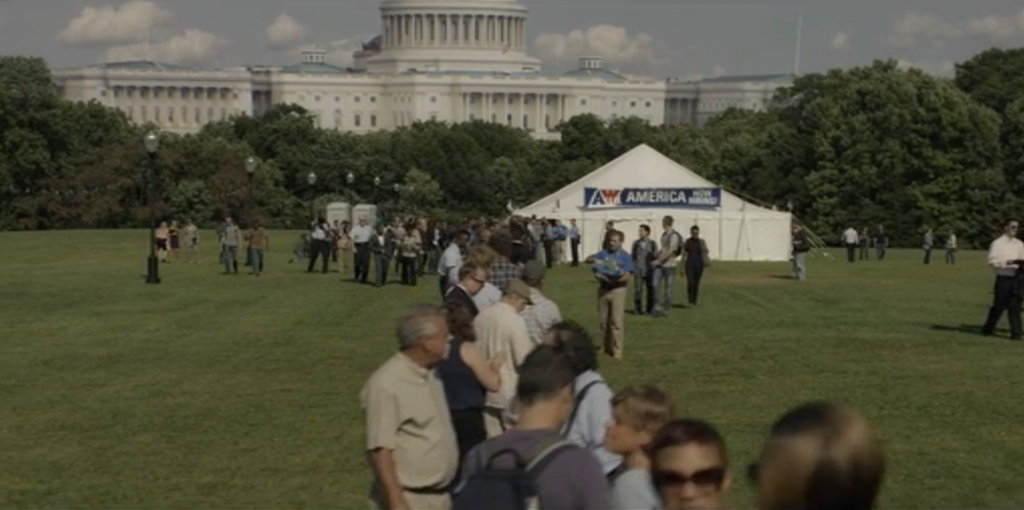
Season 3, Episode 5: "Chapter 31"
"It took us weeks of research and talking to a lot of experts. We talked to economists, professors, policy makers, congressional staff members, and slowly but surely we began to pull together a plan. You only see the tip of the iceberg in the season. We don't want to waste a lot of time getting deep into the weeds on that sort of stuff because it would slow down the drama. We wanted to communicate as little as we needed to to make it clear what Francis was trying to achieve and the scale on which he was working, but in order to give you the tip of the iceberg, we had to know the other nine-tenths underneath the surface.
We wanted Francis to do something bold, something really big, and I kept referring to the New Deal, which is probably the biggest piece of domestic legislation that the country has seen aside from, maybe, the Emancipation Proclamation. We felt like something of that size was appropriate for Frank Underwood. We wanted something clear, something that people already had strong feelings about, something that is a perpetual issue in the United States the way health care has been for decades. We started with the most grandiose and ridiculous ideas we could come up with and then we started talking to experts and moved them towards reality.
Now, something of this size and scale would be virtually impossible to get through Congress, but Francis, time and time again, is the kind of guy who says, 'You tell me it's impossible? Watch me.' And by the way, plans similar to America Works exist out there in the ether. This is one of the more extreme ideas of how to tackle unemployment, but we figured what would be interesting is if we took elements of a very conservative agenda (entitlements are bankrupting us and we need to rethink or drastically reduce them) and an almost Marxist notion (the government will supply jobs to anyone who wants them) and put them in a blender and made them work with one another. You have something that everyone would have an issue with, but there would be an element of it that everyone kinda likes. And that's precisely what Underwood knows how to work with."
8. Why did Claire dye her hair?
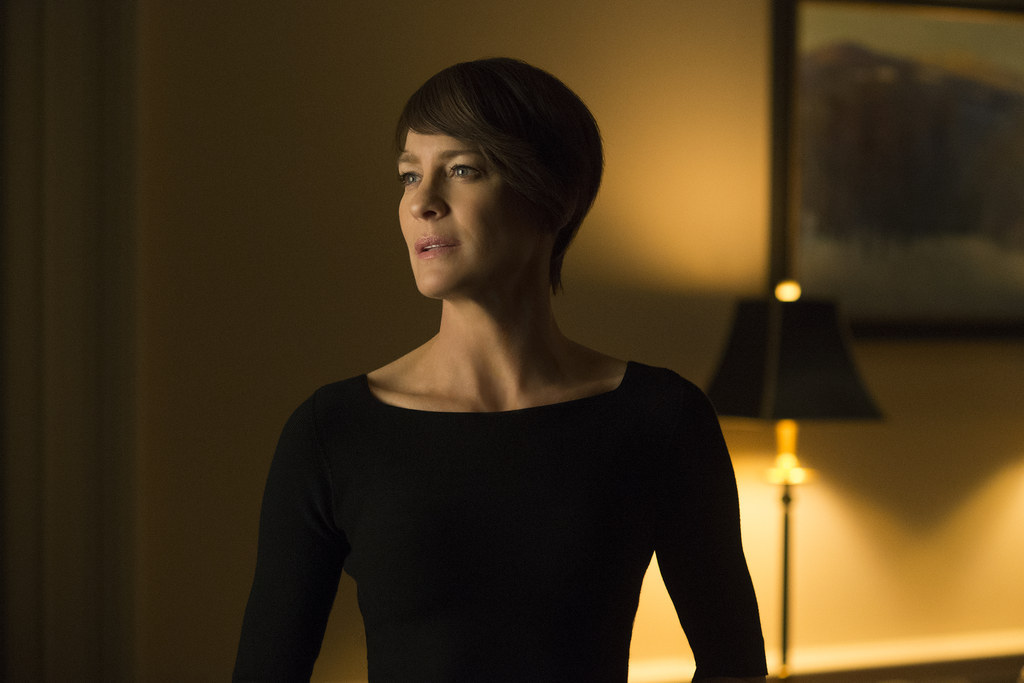
Season 3, Episode 7: "Chapter 33"
"Frank and Claire need to do something in order to save their marriage, and they choose to renew their vows — and by changing her hair back to its natural color, the color it was when she married Frank, it's sort of a declaration, in terms of self-identity, of that important time in her life. Then, a few episodes later, when a campaign manager is saying, 'Folks in Iowa really liked you more as a blonde,' precisely at the moment that she's reeling from having resigned as U.N. ambassador, she's being reduced to her hair color.
Now, none of these characters on House of Cards are meant to be based on anyone in real life, but I do feel there's a real-world analogy that's quite poignant in this case. If you think about Hillary Clinton in the first term of the Clinton presidency, she wanted to tackle health care. A lot of people claimed she didn't have the experience for it, that it was nepotistic, that she had no right to do this, that the president was being reckless with such a big issue. Ultimately, it didn't work out, and then a campaign began to show her as first lady, as domestic, as a mother. There are pictures of her baking cookies not long after she was trying to tackle an issue that half a dozen presidents had failed to solve before Clinton.
It is one of the things that is specific to being first lady: Unlike any other role in American politics, you have a great deal of power and influence by association but are also expected to be a lady. Your appearance is dissected. Articles are written about what you wear, what your hair looks like. It almost approaches the absurd. If you want to be important and do great things and people are reducing you to the color of your hair, imagine what that must feel like. She made a choice that was hers for a very personal reason, and she has to change it back because the world expects something of her. We often decide to shave or get a haircut or put on a new sweater because it makes us feel good, but when you're in politics — especially if you're first lady — you don't have that liberty."
9. Cashew was a breakout star of Season 2. Did you feel obligated to give the audience closure for that story?
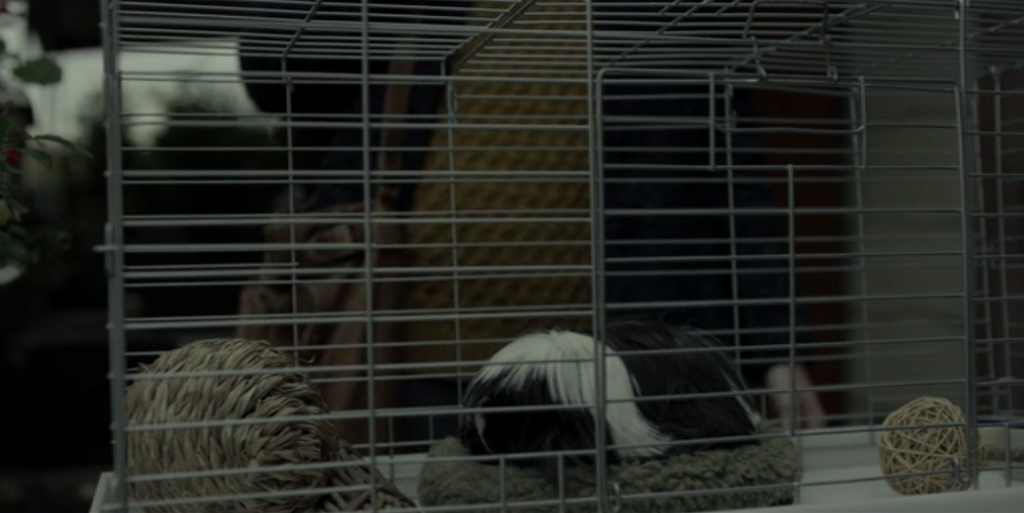
Season 3, Episode 10: "Chapter 36"
"We don't like to leave any hanging chads, even if they're guinea pigs. We all missed Cashew as much as you did. We ask ourselves every question, from the big to the minute, and one of the questions was: If Gavin [Jimmi Simpson] is skipping out of the country, what happens to Cashew? And I think that we not only get that superficial pleasure of seeing Cashew for a moment, but it's a real character moment too. The fact Gavin would even think to leave Cashew with someone who would take care of him says something about his character."
10. Suzie (Annie Parisse) tells Claire, "I wish you were running for president." Does Claire want to be president?
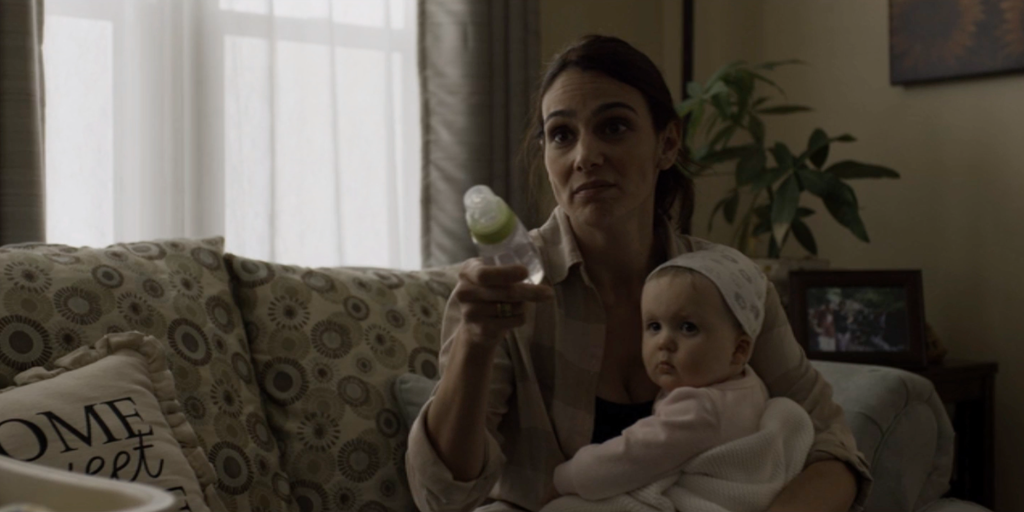
Season 3, Episode 12: "Chapter 38"
"I'm not going to answer that because I think it's more interesting for a viewer to speculate. But I will say, I've walked into the Oval Office before and you walk into that office, you look at that chair, and you wonder what it would be like to sit there. I wonder what it would be like to have the weight of the world on your shoulders. We even saw Jim Matthews [Dan Ziskie] in Season 1 go in there and steal a moment where he sat down in that chair because, how can you not? It's totally natural for the audience to be wondering that and totally reasonable to think that Claire may have had the thought."
11. Because you only see her ear, some people online have speculated that Rachel is not the girl Doug is burying. Can you confirm that is Rachel in the grave?
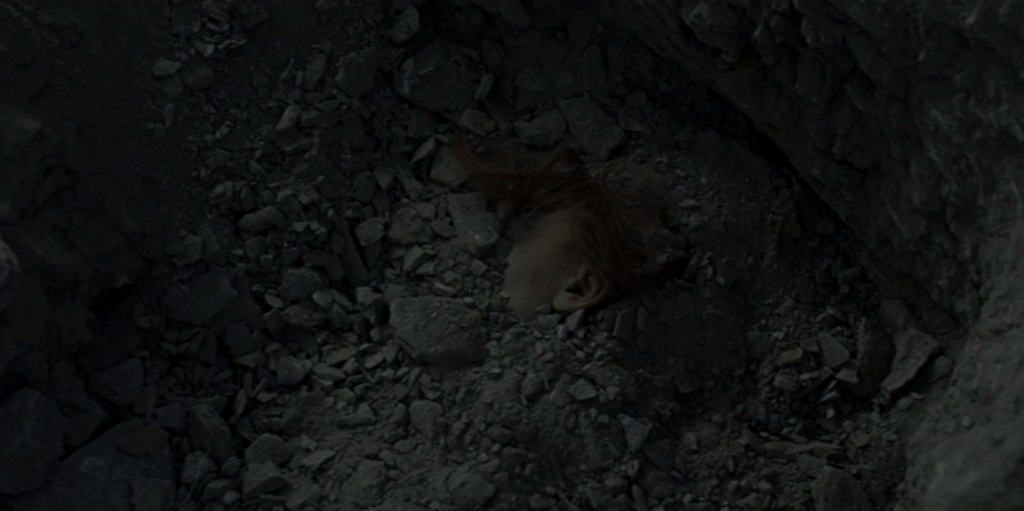
Season 3, Episode 13: "Chapter 39"
"We all can freeze-frame now. Maybe it's just because I know what the intention is there, but I thought it was pretty clear what happened to Rachel. He's shoveling dirt onto a young woman's face. I mean, unless he drove right past Rachel, found some other girl we don't know, killed her, and buried her... I guess that would be the only way out of that jam if we wanted to keep her alive, but I think it's safe to assume that's not the path we wanted to take.
[Killing Rachel off] was actually something I battled with all season. For a long time, he was going to let her go. She was going to convince him that she truly wasn't a liability and could be trusted and would disappear forever. But as we got closer to it and filmed more scenes that explored Stamper's human side and saw sides of him we never had access to before, sides that conflicted with the cold-blooded loyal henchman he previously was, that for him to let her go at that moment would have been a complete betrayal of his character. Because his story, ultimately, throughout the course of this season was finding his way back into the fold. He had to earn that, and the only way to truly earn that was to become a brother in blood with his boss."
12. What does Claire leaving Frank mean for the show moving forward?
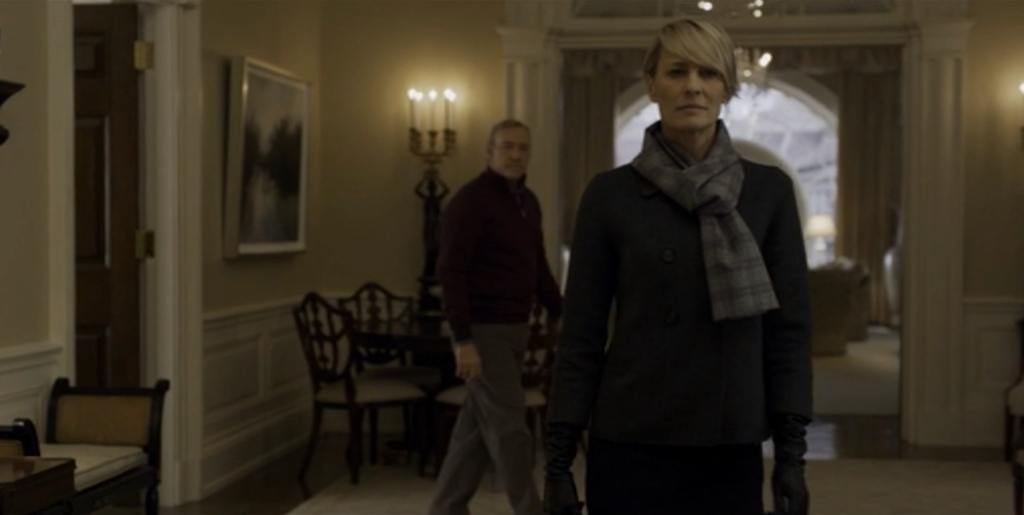
Season 3, Episode 13: "Chapter 39"
"All I'll really say is that this show has always been about this marriage, first and foremost. And here we see the marriage in the most precarious place it's ever been, which is potentially over. So if the story were to continue, the questions would be: Is it possible for these two to survive on their own? Are they going get back together? What does it mean when the Underwoods are not linking arms? If those are the questions you have, those are the questions we precisely want you to have.
I skim a little bit here and there in terms of audience response, and it's interesting to me that it's been a polarizing season for some. There seems to be a chunk of the audience that miss all the political machinations and seeing Frank and Claire be the invincible duo that we've always seen them be, which is fair. People like to see what they've grown accustomed to liking. But for us, we wanted to try something different, something new — to not try something stylistically and tonally different and dig deeper into the emotional sides of these characters would have been a huge missed opportunity. I felt like we owed it to ourselves and our audience to take it down that road. I find that really interesting because it kind of goes to the heart of the battle about what this show is really about. You're seeing that it truly is about this marriage and not so much about the politics. The hope is that people will stick with us for that because I think it will take us to far more interesting places should the show continue on."
House of Cards Seasons 1, 2, and 3 are currently streaming on Netflix.
A previous version of this story incorrectly referred to Michael Kelly as Matthew.
